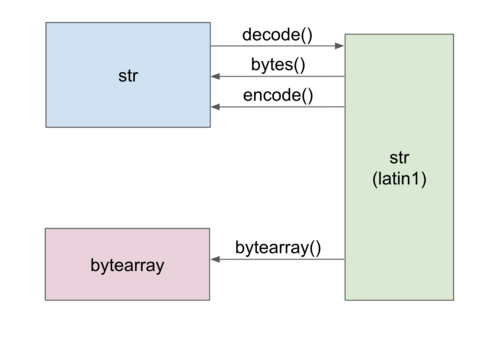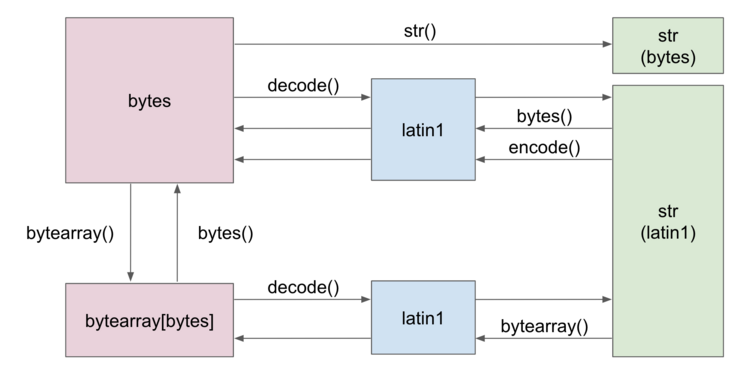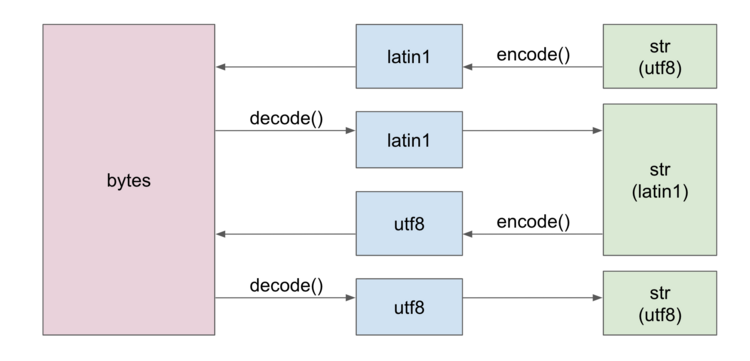User:Alvonruff/Debugging Remarks
SESSION Arguments
Since we've introduced the SESSION variable, many ISFDB scripts are no longer executable from the command line. The Session class pulls the arguments from the environment variable QUERY_STRING, which is not set when executing from the command line. When command line execution is not possible, then the new script must be installed, and if a simple syntax error appears within the file, then the browser simply returns "Internal Server Error", with no clue as to where the issue is. These types of issues are easily observable when running from the command line. To re-enable command line execution, I added the following to the end of ParseParameters in the Session class:
# Allow for command line invocation
if (cgi_path == None) and (self.query_string == None):
num_args = len(sys.argv)
for i in range(1, num_args, 1):
self.parameters.append(sys.argv[i])
Try/Except Usage
We have a tendency to use try/except to cover many possible potential issues within a large code block. Here's an actual example from se.py, which contains one error when trying to run under Python3:
try:
type = form['type'].value
# Save the double-quote-escaped version of the original search value
# to be re-displayed in the search box
search_value = form['arg'].value.replace('"','"')
# Replace asterisks with % to facilitate wild cards
arg = str.replace(normalizeInput(form['arg'].value), '*', '%')
# Double escape backslashes, which is required by the SQL syntax
arg = string.replace(arg, '\\', '\\\\')
user = User()
user.load()
if not user.keep_spaces_in_searches:
arg = str.strip(arg)
if not arg:
raise
except:
PrintHeader("ISFDB Search Error")
PrintNavbar('search', %'%', 0, 'se.cgi', )
print("No search value specified")
PrintTrailer('search', , 0)
sys.exit(0)
- When this runs, all we see is "ISFDB Search Error, No search value specified", with no clue as to which clause might have caused the error. The typical approach then is to copy all of the try code, copy it to a position above the try statement, and then reformat the lines. Rather than getting into a philosophical debate about the overusage of try/except, we can make these blocks more debuggable. For instance, if we change the except clause above to:
import traceback
except Exception as e:
e = traceback.format_exc()
PrintHeader("ISFDB Search Error")
PrintNavbar('search', , 0, 'se.cgi', )
print("No search value specified")
print('Error: ', e)
PrintTrailer('search', , 0)
sys.exit(0)
- We now see the following error message:
Error: Traceback (most recent call last): File "/var/www/cgi-bin/se.cgi", line 263, in arg = string.replace(arg, '\\', '\\\\') AttributeError: module 'string' has no attribute 'replace'
- Showing that we forgot to replace 'string' with 'str'.
SQL Debugging
As documented elsewhere, there is an issue with mysql.connector in extracting DATE values from MySQL when the month or day is zero. We have an SQL syntax fix for that, but there are many hundreds of SQL statements in the ISFDB, so only a small percentage have been addressed so far. When debugging a script (adv_search_results.py comes to mind, since that is my current problem area), one simply sees the following error:
TypeError: must be str, not datetime.date
args = ('must be str, not datetime.date',)
with_traceback = <built-in method with_traceback of TypeError object>
- So we know where the final problem occurred, but not which SQL method needs to be altered. Sometimes it is trivial to find, but on other occasions it requires looking through library.py, common.py, and some number of *Class.py files, which takes a fair amount of time. Additionally, I would like to make a set of SQL unit tests, but don't know what typical valid arguments look like.
- As such, I've added an SQL logging feature to the Session class, which can be enabled in SQLparsing.py by setting SQLlogging to 1. This records a running log in SESSION, and can output a bulleted list of the SQL function calls that were made by a particular script, outputting them in a new section added by PrintTrailer(). For scripts that are generating faults, a call to SQLoutputLog() can be temporarily inserted just above the fault point in the code. Relevant variables/methods:
- SQLlogging (SQLparsing.py) - Turns the feature on/off.
- SQLlog(arg) - Logs an SQL function call.
- SQLoutputLog() - Will output the log stored in the SESSION class. Each line is prepended with an HTML LI to print a bullet list in the browser.
General Unicode Debugging
I don't expect others to be debugging unicode issues, as they only arise during big projects, like updating the LAMP stack, moving to Python3, or moving everything to UTF-8, so these notes are mostly to remind myself. The following components all have something to say about character sets within the ISFDB stack:
- Browser - Displays what the document charset statement tells it to
- Apache - Currently set to latin-1 via AddDefaultCharset ISO-8859-1 in httpd.conf
- ISFDB - Currently set to latin-1 via an charset=iso-8859-1 statement in the first meta tag. The is set in localdefs.py as UNICODE.
- mysql.connector - Currently set to 'latin1', via db.set_charset_collation('latin1')
- MySQL - Currently set to 'latin1'
Nonetheless, what we're currently seeing on ISFDB2 while running on Python3 looks suspiciously like UTF-8 decoded as Latin-1 (to experiment with strange output characters (mojibake) associated with encode/decode mismatches, try this tool). To verify this I'll use René Quillivic as an example. The LATIN-1 construction of the author's name is:
52 65 6e e9 20 51 75 69 6c 6c 69 76 69 63
Where the individual characters are encoded thus:
52 = R 65 = e 6e = n E9 = é 20 = Space 51 = Q 75 = u 69 = i 6c = l 6c = l 69 = i 76 = v 69 = i 63 = c
The UTF-8 construction of the author's name is:
52 65 6e c3 a9 20 51 75 69 6c 6c 69 76 69 63
Where the individual characters are encoded thus:
52 = R 65 = e 6e = n C3 A9 = é 20 = Space 51 = Q 75 = u 69 = i 6c = l 6c = l 69 = i 76 = v 69 = i 63 = c
Debugging Unicode issues can be difficult, as the browser will decode (based on the charset statement in the document) whatever Python is doing, so you can't trust the output. The best way to debug is from the command line, so that Apache and the Browser are removed from the problem. I have added the following code to common/library.py
def debugUnicodeString(input, filename):
f = open(filename, "w")
f.write(input)
f.close()
Which will push the target string into a file. This is invoked as follows:
debugUnicodeString(self.au_data[AUTHOR_CANONICAL], "AUTHOR_UNICODE")
After running from the command line, the file AUTHOR_UNICODE will appear. You also can't trust what you see in vi/vim, as that can be altered by its own character set command (set fileencodings=utf-8). Instead the actual bytes can be viewed on linux with: od -X AUTHOR_UNICODE. It will produce the following output:
[alvonruff@stage biblio]$ od -X AUTHOR_UNICODE 0000000 c36e6552 755120a9 696c6c69 00636976 0000017
The byte order within each word is reversed due to the little-endian architecture of the underlying machine. If the endianess is disturbing, you can issue od -X --endian=big AUTHOR_UNICODE, which generates:
[alvonruff@stage biblio]$ od -X --endian=big AUTHOR_UNICODE 0000000 52656ec3 a9205175 696c6c69 76696300 0000017
It is now easy to tell that this string is encoded with UTF-8. UTF-8 happens to be the default string encoding with Python3, so either the mysql.connector charset specification is being done incorrectly, or something more insidious happens when python3 picks up the string.
This can be isolated by writing a unittest in my new formal test suite:
class MyTestCase(unittest.TestCase):
def test_002_SQLloadAuthorData(self):
print("TEST: SQLloadAuthorData")
author = SQLloadAuthorData('185901')
printAuthorRecord(author)
where printAuthorRecord() also calls debugUnicodeString(). Under Python3 this generates:
od -x --endian=big AUTHOR_PYTHON3 0000000 5265 6ec3 a920 5175 696c 6c69 7669 6300
Whereas under Python2 this generates:
od -x --endian=big AUTHOR_PYTHON2 0000000 5265 6ee9 2051 7569 6c6c 6976 6963
Now, if I turn off unicode in the connector, like this:
db = mysql.connector.connect(user=USERNAME, password=PASSWORD, host=DBASEHOST, database=DBASE, charset='latin1', use_unicode=False)
a lot of stuff obviously fails, but I do see the following:
TEST: SQLloadAuthorData ID = 185901 CANONICAL = bytearray(b'Ren\xe9 Quillivic')
Whereas, if I change the followup charset configuration from:
db.set_charset_collation('latin1', 'latin1_swedish_ci')
to:
db.set_charset_collation('utf8mb4')
We see:
TEST: SQLloadAuthorData ID = 185901 CANONICAL = bytearray(b'Ren\xc3\xa9 Quillivic')
So all of the config parameters on the connector seem to be doing the right thing. The only thing left is whether print() itself is using some kind of encoding. print() send output on the stdout file descriptor, so if we check stdout:
Python 3.6.8 (default, Nov 17 2021, 16:10:06) [GCC 8.5.0 20210514 (Red Hat 8.5.0-3)] on linux Type "help", "copyright", "credits" or "license" for more information. >>> import sys >>> print(sys.stdout) <_io.TextIOWrapper name='<stdout>' mode='w' encoding='UTF-8'>
Well, hello there. Although not well documented, Python3 picks up the encoding for stdout from locale information stored in the user's environment. This is an OS-specific topic (see: https://lwn.net/Articles/741364/ and https://vstinner.github.io/python3-locales-encodings.html ), but in general Python picks up the locale information from the LANG environment variable. On Linux we see:
>>> import os
>>> print([(k, os.environ[k]) for k in os.environ if k.startswith('LANG')])
[('LANG', 'en_US.UTF-8')]
>>> import locale
>>> print(locale.getlocale())
('en_US', 'UTF-8')
Since this is OS-dependent, we see something different when running Python on Windows:
Python 3.11.3 (tags/v3.11.3:f3909b8, Apr 4 2023, 23:49:59) [MSC v.1934 64 bit (AMD64)] on win32
Type "help", "copyright", "credits" or "license" for more information.
>>> import locale
>>> print(locale.getlocale())
('English_United States', '1252')
From the bash shell:
$ env | grep LANG LANG=en_US.UTF-8
A set of valid locales can be found at https://docs.oracle.com/cd/E23824_01/html/E26033/glset.html . If we set LANG to a valid US, Latin-1 value:
export LANG=en_US.ISO8859-1
Then the test case now passes. A simple cross-platform fix is to configure Apache. So I put the following in /etc/httpd/conf/httpd.conf:
SetEnv LANG en_US.ISO8859-1
And things look pretty good now. The sad part is that since all I/O to stdout was affected, the bytes stored in the file system WERE ALSO A LIE. Remember to put the following in your .bashrc for future command line use:
export LANG=en_US.ISO8859-1
Finally, if you want a quick command to see how your Python installation is performing file I/O, one can issue:
>>> import sys >>> print(sys.getfilesystemencoding()) iso8859-1
So you might be thinking: why not just cat AUTHOR_PYTHON3 and see what it looks like? Three reasons:
- Linux defaults to UTF-8, so if you create a directory using LATIN-1, the cat command is going to use the $LANG environment variable to perform an encoding.
- If you used ssh to get onto the system, it too does encoding, but uses the LC_CTYPE to do so. Note that Python actually checks the following environment variables in the following precedence order: LC_ALL, LC_CTYPE, then LANG. You can set LC_CTYPE with:
export LC_CTYPE=en_US.ISO8859-1
- Terminal programs also have a default character set. I'm mostly using MacOS 'Terminal'; if you open its Preferences menu, there is an Encodings tab, which controls which charsets you want to be able to choose from, while the Profiles > Advanced tab shows the text encoding currently in use.
The bottom line is that charset preferences can be found everywhere, and they all currently default to UTF-8. It's a UTF-8 world.
XML Unicode Debugging
So in order to understand the XML issues on Python3, we need to cover the situation with unicode codecs on Python3 vs Python2. The general concept of codecs separates containers from encoders. For instance, in the audio domain, an audio file can be encoded with the Vorbis codec, but that encoding might be held within a WEBM container (a good intro on video codecs/containers can be found here). For python unicode strings, the encoder/decoder are character set encoder/decoders like "latin1" or "utf-8", while the container is a built in type, like "str". In Python2, the container/type space was very simple:
If you begin with an object of type str, and perform an encode() on it, it generates another str. If you perform a decode() on that str, it generates yet another str. When everything is an str, then performing an encode/decode simply changes the charset encoding within the string. The situation on Python3 is far more complex:
In Python3 there are 3 container/types: str, bytes, and bytearray. In python3, a string always has an encoding. If you create a string in a program, it automatically is encoded as UTF-8. When strings come out of MySQL, they already have the encoding specified by MySQL and the connector (latin-1 at present). In order for a string to be encoded as ASCII, you must specifically encode it. If you want to move a str from a UTF-8 encoding to a latin-1 encoding, you need to issue an encode to latin-1 - but the result is a bytes object encoded in latin-1. To make that a string, you need to issue a decode on the bytes object. If you want to change types on a latin-1 str, you perform an encode() on it, and you get latin-1 bytes. To move it back you perform a decode on the latin-1 bytes to get a latin-1 str.
If one starts with a str, you can only perform an encode() on that string - you cannot use decode() on the type str (The str object does not even have the method decode). The encode() generates a new object of type bytes. Likewise, a decode() can only be performed on objects of type bytes or bytearray, and will always generate an object of type str. Objects of type bytes do not have the method encode.
Our code for GetElementValue() looks like this:
def GetElementValue(element, tag):
document = element[0].getElementsByTagName(tag)
try:
value = document[0].firstChild.data.encode('iso-8859-1')
except:
value =
return value
Under Python2 the encode() call transfers the data object into another string. So value has the type str. Under Python3, the encode() call causes an object of type bytes to be created, so value has the type bytes. So, to move the data back into a str type, we need to insert a decode():
def GetElementValue(element, tag):
document = element[0].getElementsByTagName(tag)
try:
value = document[0].firstChild.data.encode('iso-8859-1')
value = value.decode('iso-8859-1')
except:
value =
return value
There are probably 2 ways to fix this:
- Add a decode() statement as above, to change the type from bytes to str
- Remove the original encode call. This is not necessary under Python3, as every string always has an encoding, and this particular string picked up a latin1 encoding from MySQL.
This fix is a prerequisite for moving on to the edit and mod scripts. So, a list of potential problem areas:
| File | Current Code | Status |
|---|---|---|
| common/library.py | value = document[0].firstChild.data.encode('iso-8859-1') | The encode() was dropped |
| common/library.py | value = tag.firstChild.data.encode('iso-8859-1') | The encode() was dropped |
| common/SQLparsing.py | first_normalized_letter = unicodedata.normalize('NFKD', first_unicode_letter).encode('ascii', 'ignore').decode('ascii', 'strict').lower() | The encode() is matched with a decode(), so no change is necessary |
| common/SQLparsing.py | second_normalized_letter = unicodedata.normalize('NFKD', second_unicode_letter).encode('ascii', 'ignore').decode('ascii', 'strict').lower() | The encode() is matched with a decode(), so no change is necessary |
| common/viewers.py | self.metadata[group_name].append(XMLunescape(value.firstChild.data.encode('iso-8859-1'))) | The encode() was dropped |
| common/viewers.py | self.metadata[element_name].append(XMLunescape(record.encode('iso-8859-1'))) | The encode() was dropped |
| biblio/submitlogin.py | submittedKey = pbkdf2_hmac(hashAlgo, password.encode('utf-8'), salt, cost) | submittedKey is passed as an argument to binascii.hexlify(), which now wants bytes anyway, so no change here is required. |
| mod/aa_update.py | new_value = XMLunescape(element.firstChild.data.encode('iso-8859-1')) | |
| mod/award_cat_new_file.py | address = XMLunescape(webpage.firstChild.data.encode('iso-8859-1')) | |
| mod/award_cat_update_file.py | address = XMLunescape(webpage.firstChild.data.encode('iso-8859-1')) | |
| mod/award_type_new_file.py | address = XMLunescape(webpage.firstChild.data.encode('iso-8859-1')) | |
| mod/award_type_update_file.py | address = XMLunescape(webpage.firstChild.data.encode('iso-8859-1')) | |
| mod/ca_new.py | title_value = XMLunescape(trans_title.firstChild.data.encode('iso-8859-1')) | |
| mod/ca_new.py | address = XMLunescape(webpage.firstChild.data.encode('iso-8859-1')) | |
| mod/ca_new.py | data = XMLunescape(author.firstChild.data.encode('iso-8859-1')) | |
| mod/ca_new.py | data = XMLunescape(author.firstChild.data.encode('iso-8859-1')) | |
| mod/ka_new.py | title_value = XMLunescape(trans_title.firstChild.data.encode('iso-8859-1')) | |
| mod/ka_new.py | url = XMLunescape(web_page.firstChild.data.encode('iso-8859-1')) | |
| mod/ka_new.py | data = XMLunescape(author.firstChild.data.encode('iso-8859-1')) | |
| mod/pa_new.py | title_value = XMLunescape(trans_title.firstChild.data.encode('iso-8859-1')) | |
| mod/pa_new.py | address = XMLunescape(webpage.firstChild.data.encode('iso-8859-1')) | |
| mod/pa_new.py | data = XMLunescape(author.firstChild.data.encode('iso-8859-1')) | |
| mod/pa_new.py | title_value = XMLunescape(trans_title.firstChild.data.encode('iso-8859-1')) | |
| mod/pa_new.py | address = XMLunescape(webpage.firstChild.data.encode('iso-8859-1')) | |
| mod/pa_new.py | data = XMLunescape(author.firstChild.data.encode('iso-8859-1')) | |
| mod/pa_new.py | title_value = XMLunescape(trans_title.firstChild.data.encode('iso-8859-1')) | |
| mod/pa_update.py | title_value = XMLunescape(trans_title.firstChild.data.encode('iso-8859-1')) | |
| mod/pa_update.py | address = XMLunescape(webpage.firstChild.data.encode('iso-8859-1')) | |
| mod/pa_update.py | data = XMLunescape(author.firstChild.data.encode('iso-8859-1')) | |
| mod/sa_update.py | name = XMLunescape(trans_name.firstChild.data.encode('iso-8859-1')) | |
| mod/sa_update.py | address = XMLunescape(webpage.firstChild.data.encode('iso-8859-1')) | |
| mod/ta_update.py | address = XMLunescape(webpage.firstChild.data.encode('iso-8859-1')) | |
| mod/ta_update.py | title_value = XMLunescape(trans_title.firstChild.data.encode('iso-8859-1')) | |
| mod/ta_update.py | data = XMLunescape(author.firstChild.data.encode('iso-8859-1')) | |
| mod/ta_update.py | data = XMLunescape(author.firstChild.data.encode('iso-8859-1')) | |
| mod/ta_update.py | data = XMLunescape(author.firstChild.data.encode('iso-8859-1')) | |
| mod/va_new.py | title_value = XMLunescape(trans_title.firstChild.data.encode('iso-8859-1')) | |
| mod/va_new.py | data = XMLunescape(author.firstChild.data.encode('iso-8859-1')) | |
| mod/wa_new.py | data = author.firstChild.data.encode('iso-8859-1') | |
| mod/wa_update.py | data = XMLunescape(author.firstChild.data.encode('iso-8859-1')) | |
| mod/xa_update.py | name = XMLunescape(trans_name.firstChild.data.encode('iso-8859-1')) | |
| mod/xa_update.py | address = XMLunescape(webpage.firstChild.data.encode('iso-8859-1')) | |
| mod/za_update.py | name = XMLunescape(trans_name.firstChild.data.encode('iso-8859-1')) | |
| mod/za_update.py | address = XMLunescape(webpage.firstChild.data.encode('iso-8859-1')) | |
| rest/submission.py | value = document[0].firstChild.data.encode(UNICODE) |
URLLIB
The syntax for accessing urllib is different under Python3:
| Python2 | Python3 |
|---|---|
| import urllib
urllib.quote |
import urllib.parse
urllib.parse.quote |
| import urllib
urllib.unquote |
import urllib.parse
urllib.parse.unquote |
| import urllib2
urllib2.urlopen |
import urllib.request
urllib.request.urlopen |
| from urlparse import urlparse
urlparse |
from urllib.parse import urlparse
urlparse |
Since there are only a few affected methods, but a great number of instances, it would probably be best to make a convenience function to place the python versioning mess into a single location.


